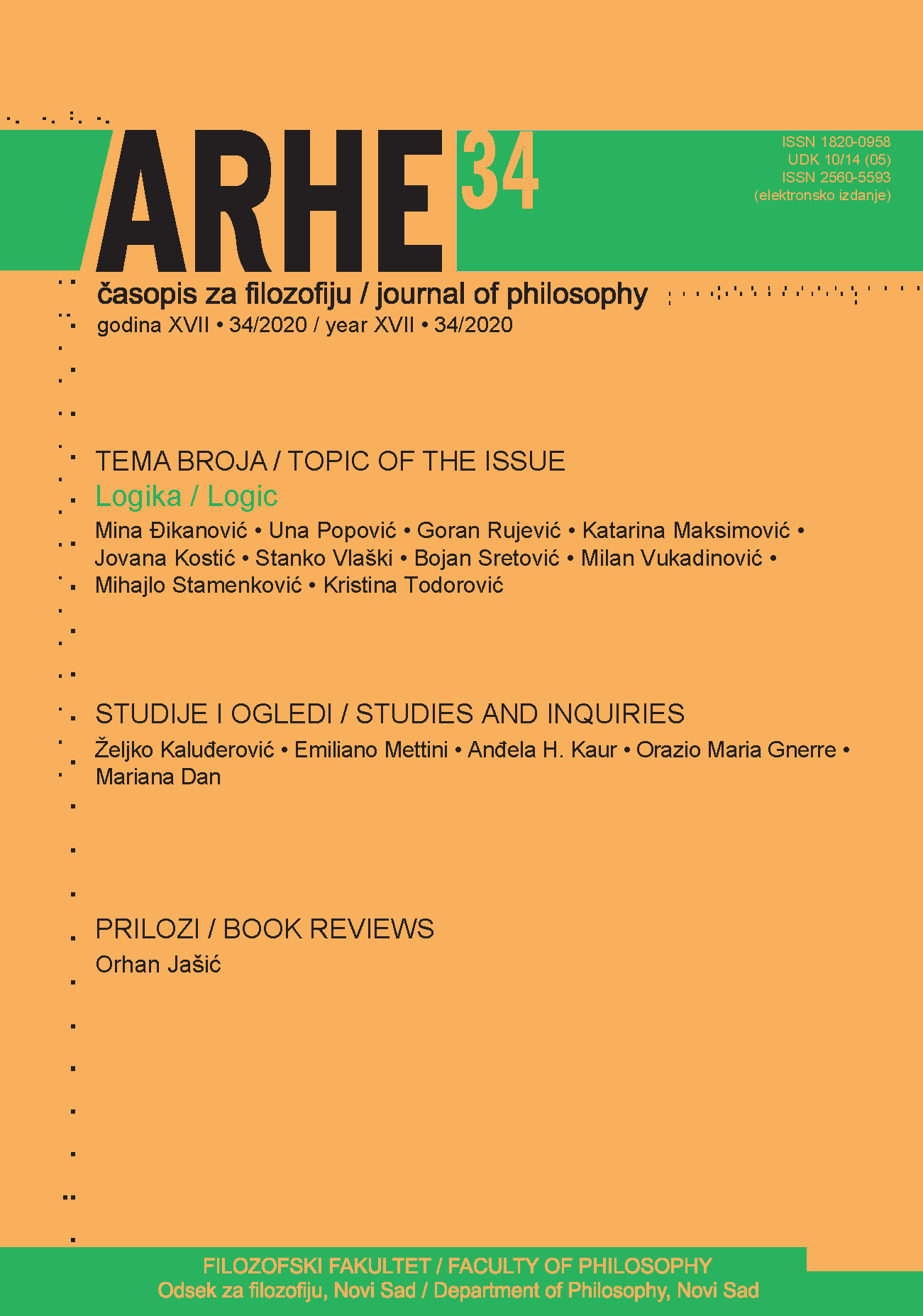Under an Unstarry Sky: Kantian Ethics and Radical Evil
Under an Unstarry Sky: Kantian Ethics and Radical Evil
Author(s): Emiliano MettiniSubject(s): Ethics / Practical Philosophy, German Idealism, Philosophy of Religion
Published by: Филозофски факултет, Универзитет у Новом Саду
Keywords: I. Kant;ethics;religion;S. Žižek;C. G. Jung;Job;Dostoevsky;
Summary/Abstract: Kantian ethics and concept concerning “radical evil” represent one of the most interesting facets of moral reflection of German philosopher. Using anthropological and philosophical approach based on well-known critical method, I. Kant tried to find a comprise between “natural” behavior (i.e. not regulated by synthetic a priori judgments) but based only on sensation of pleasant unpleasant and “rational” behavior when humans tried to exit the realm of appearance and personal egoism for entering a new ethical dimension based on right (not pathological, if using I. Kant’s word) maxims being able to make human beings better than they are. In the paper it is underscored that main goal of Kantian ethics is the creation of a community where religion is a fact of reason and not of faith and reason, having as main actors men reaching an high level of self-consciousness and virtue that I. Kant granted as the greatest happiness one can have. The author tried to highlight the passage from “human being” as individuum (representative of a species) to ethically autonomous member of social consortium using as sources different Kantian works where this problem has been studied deeply and gave great emphasis to story of Job, representing in the best way the passage the Author wrote of. At the same time, he set for himself the goal of exploring progressive character of Kantian ethics aimed at making human beings better than they are, but not the best, considering noumenic nature of ethics hidden in the “Realm of goals”. Given such assumptions, the Author leads a debate with scholars distorting Kantian ethical thought by interpretation from Lacanian standpoints so that those scholars made I. Kant original source of totalitarianisms, where, in scholars’ opinion, humans do their duty both for saving their lives and express their sadistic tendencies and makes clear that Kantian ethics, throughout contradictory and complicated, is oriented to correction and education of human behavior for saving humans being from their own passions.
Journal: Arhe
- Issue Year: 2020
- Issue No: 34
- Page Range: 241-274
- Page Count: 34
- Language: English

